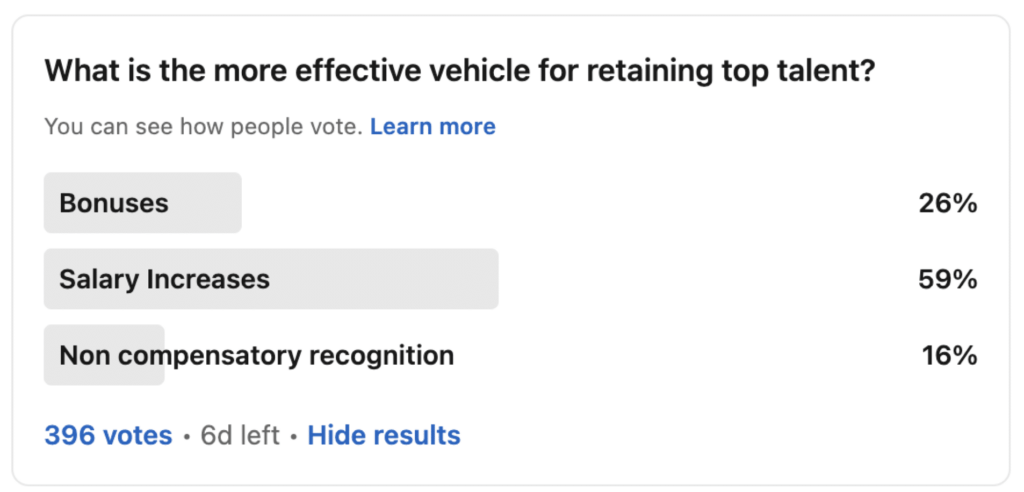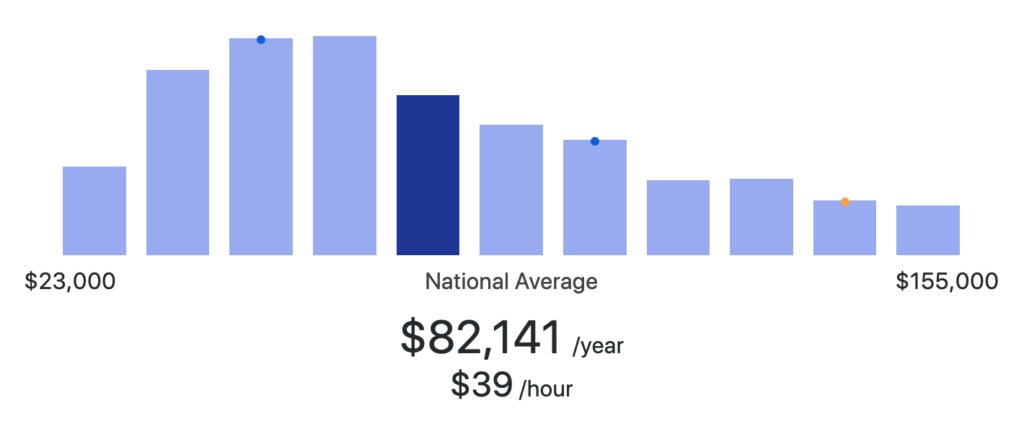The Impact of Compensation Structure on SaaS Sales Recruitment
Published on Sep 12, 2024

There are several factors that SaaS sales reps consider when looking for a job, including career development opportunities, working environment, benefits, and company culture. But when you get down to the nitty-gritty, compensation is still number one for many reps. Therefore, compensation structure will greatly impact your SaaS sales recruitment.
In this article, I’ll break down the specifics regarding the impact of compensation structure and offer recent data on how much salespeople earn on average.
Attract Top SaaS Sales Talent
According to the 2022 Salesforce State of Sales report, “The top reasons sales professionals want to leave their jobs include unrealistic sales targets and uncompetitive pay and benefits.” Although money isn’t everything, there’s no denying that it’s a major factor, if not THE main factor for SaaS salespeople when considering which company to work for.
If you want to attract the true superstars of your industry, you’ll need an enticing compensation structure. Later I’ll provide a breakdown of what companies pay on average so you’ll have a benchmark for reference. But for now, know that the salary you offer top SaaS sales candidates will heavily impact your ability to bring them on board.
Motivate SaaS Salespeople
Not only does a solid compensation structure help attract top talent, it also plays an instrumental role in motivating them to perform at their best. I think this quote from the Revenue Operations Alliance says it perfectly.
“Poor compensation is a major contributor to sales rep turnover. If you don’t nail your approach to compensation, you may be at risk of losing your top talent. Rewarding your sales team with competitive pay and setting them realistic quotas, keeps them happy and motivated to perform. If quotas are too high, you risk demotivating your reps.”
Just put yourself in the shoes of an elite rep for a second. If they know they’re getting paid fairly and have incentives like bonuses and other rewards for going above and beyond, they’ll be far more motivated than if they were getting paid below average with zero incentives. And if they work for a company that pays better than most competitors and offers robust bonuses and rewards, the rep will likely push themself even further.
Conversely, if they receive less than average pay with little to no bonus opportunities, you’re likely to get only the bare minimum from them. This classic scene from the movie Office Space comes to mind here.
Drive Revenue Growth
When you’re able to 1) attract top SaaS sales talent and 2) keep them consistently motivated to perform at their best, an inevitable result in most cases is increased revenue.
As we’ve discussed, well-paid sales reps are more likely to go the extra mile. In turn, this can translate into a host of benefits, including:
- Alignment with company goals
- Not only reaching but exceeding sales targets
- More closed deals
- Improved customer relationships to set the stage for upselling and repeat purchases
- Better collaboration with other salespeople, as well as with other company departments
When you look at it from this perspective, investing more in a salesperson’s salary can pay off in the long run. Although you may spend more upfront, the revenue spike you’ll likely will often justify it.
Retain Sales Reps
And let’s not forget one of the most critical elements for building a successful SaaS company — retention. Obviously, retaining customers is huge for gaining momentum. But it’s also extremely important to retain your salespeople, especially top performers.
This starts by offering a strong salary structure to begin with. But experts say it’s also important to offer periodic salary increases. In fact, “59% of professionals polled believe that salary increases are the most effective tool in retaining top talent.” It’s also worth noting that “26% consider bonuses to be the primary mechanism.”

Ideally, you’ll lay a strong foundation by offering new SaaS salespeople fair or better-than-average pay. And over time, with good performance, you’ll steadily increase their salary and offer bonuses along the way.
How Much Should You Pay Your SaaS Salespeople?
Now that we’ve established why having the right compensation structure is important, let’s discuss the question you’re probably wondering right now. How much should you pay your SaaS salespeople?
This is a topic we covered in-depth in this article, which contains a ton of great 2023. Here are the highlights to give you a basic idea of what most companies are paying their SaaS sales reps.
According to data from Comparably, the US average in 2023 was $109,335, which was the highest of the three sources I analyzed.

Glassdoor had a slightly lower number at $108,003.

And ZipRecruiter had the national average considerably lower at $82,141 per year.

After crunching these numbers, the overall average between the three sources was $99,826 a year. While there are numerous factors like location, company size, and employee experience that will impact how much a SaaS salesperson should get paid, I feel that around $100,000 a year is a pretty good baseline number.
Note that those in the SaaS industry tend to get paid more than other salespeople due to the level of expertise, training, and tech savviness they need to possess. So that’s something to take into consideration. If you’re looking for a practical guide on how to set up a compensation structure for your SaaS company, I suggest this one from HubSpot.
The Importance of a Strong Compensation Structure
To recap, having the right compensation structure can help you attract top talent, motivate your reps, drive revenue growth, and boost employee retention. Beyond that, it plays a vital role in the overall longevity of your SaaS company and in building brand equity. The bottom line is that you want to find the sweet spot where you pay SaaS salespeople enough without throwing money away by going overboard.
If you’re looking to level up your SaaS recruiting to find sales reps who check all the right boxes, try our Hiring Readiness Assessment. Improve screening accuracy, reduce hiring mistakes, and turn your sales hiring into a well-oiled machine.
